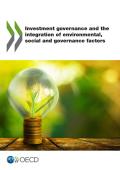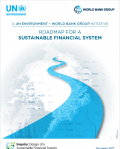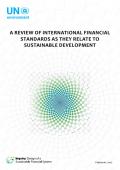
This paper, Investment Governance and the Integration of Environmental, Social and Governance Factors, examines how pension funds, insurance companies and asset managers approach environmental, social and governance (ESG) risks and opportunities in their portfolio investments.

The Roadmap for a Sustainable Financial System proposes an integrated approach to accelerate the transformation toward a sustainable financial system that can be used by all financial sector stakeholders and can bring policy cohesiveness across ministries, central banks, financial regulators, and private financial sector participants to focus efforts.
To guide investors – both asset owners and investment managers – who are implementing ESG integration techniques in their investment decisions and processes, this report, A Practical Guide To ESG Integration For Equity Investing is the most comprehensive description to date of what ESG-integrated analysis is, and how it works in practice.

This report A Review of International Financial Standards as They Relate to Sustainable Development examines how the international financial standards currently relate to the goals of sustainable development and explores opportunities for better alignment as a way to promote greater stability, resilience and fairness to the financial system.
The Shifting Perceptions: ESG, credit risk and ratings - Part 1- the state of play report looks at why ESG factors matter in credit risk analysis, what investors and credit-rating agencies (CRAs) are currently doing on this front, and what their expectations are.
